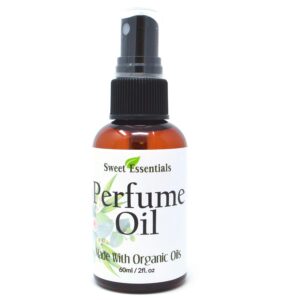

Marijuana (cannabis) gummies and edibles. (© AI Visual Vault – stock.adobe.com)
In A Nutshell
- Cannabis users had significantly reduced artery function. Flow-mediated dilation (FMD) dropped by over 40% in marijuana smokers and THC edible users compared to nonusers.
- Edible users fared worse than smokers in one key measure. Average FMD was 4.6% for edible users vs. 6.0% for smokers—both lower than the 10.4% seen in nonusers.
- The more you use, the worse your vascular health. A strong dose-response relationship was found: more THC meant poorer blood vessel function.
SAN FRANCISCO — That joint might not be as harmless as you think. A new study reveals that chronic marijuana use — whether smoked or consumed as edibles — may impair blood vessel function in ways comparable to tobacco smoking.
Researchers at the University of California, San Francisco, found that chronic cannabis users show measurable signs of endothelial dysfunction, with significantly reduced blood vessel dilation. With states continuing to go down the legalization route, the findings, published in JAMA Cardiology, offer a serious warning to individuals turning to marijuana as a “safer” alternative to tobacco.
“There is a popular belief that marijuana smoke is harmless. However, marijuana smoke contains many of the thousands of chemicals contained in tobacco smoke,” the researchers write.
How Scientists Tested Cannabis Users’ Hearts
The study involved 55 healthy adults between ages 18 and 50 in the San Francisco Bay Area, divided into three matched groups: marijuana smokers (≥3 times weekly for ≥1 year), THC-edible users (≥3 times weekly for ≥1 year), and nonusers. All participants were confirmed non-tobacco users, and researchers screened for secondhand smoke exposure by testing for nicotine and cotinine in urine.
To assess vascular health, scientists measured each participant’s flow-mediated dilation (FMD), a standard method of gauging how well arteries expand in response to increased blood flow. They also tested pulse wave velocity (PWV), a measure of arterial stiffness, and ran lab experiments using participants’ blood serum on cultured human endothelial cells.


The Results Show Clear Differences
Marijuana smokers showed significantly reduced FMD (6.0%) compared to nonusers (10.4%). THC-edible users had even lower FMD (4.6%). Both differences were statistically significant. The reductions in FMD were similar to those reported in tobacco smokers in prior research.
Researchers also found a dose-response relationship: more frequent marijuana smoking and higher THC consumption were correlated with worse endothelial function.
In lab experiments, serum from marijuana smokers — but not edible users — reduced nitric oxide production in cultured endothelial cells. Nitric oxide helps arteries relax and maintain blood flow, so this decline suggests one mechanism by which smoking cannabis might impair cardiovascular function.
Different Methods, Same Heart Risk?
Both smoking and edible consumption of cannabis were associated with vascular dysfunction, though likely via different biological pathways. Smoke exposure appears to suppress nitric oxide directly, while THC edibles may affect the cardiovascular system through metabolic processes during digestion.
The study’s authors conclude that the vascular impairment in cannabis users was “similar to that observed in tobacco smokers, although apparently occurring via distinct mechanisms.”


What This Means For Cannabis Users
Cannabis use today continues to become more common across the U.S. While many view marijuana as safer than cigarettes or alcohol, this research adds to growing evidence that cannabis, especially when used chronically, may carry underappreciated cardiovascular risks.
The study is not without limitations. It was cross-sectional (not longitudinal), included only 55 participants, and couldn’t control for every variable related to strain, dose, or lifestyle. Still, the observed effects were strong enough to reach statistical significance.
The researchers conclude that chronic marijuana use, whether smoked or ingested, is associated with endothelial dysfunction, a known precursor to heart disease. As legalization expands, public health messaging may need to catch up with emerging evidence that marijuana use isn’t entirely benign.
Paper Summary
Methodology
Researchers recruited 55 healthy adults aged 18-50 from the San Francisco Bay Area, dividing them into three groups: chronic marijuana smokers (smoking at least 3 times weekly for over a year), THC edible users (consuming edibles at least 3 times weekly for a year), and non-users. All participants were screened to ensure they didn’t smoke tobacco, vape, or have regular secondhand smoke exposure. Scientists measured arterial flow-mediated dilation to assess blood vessel function, pulse wave velocity to measure arterial stiffness, and conducted laboratory experiments exposing cultured heart cells to participant blood serum to measure nitric oxide production.
Results
Both marijuana smokers and THC edible users showed severely impaired blood vessel function compared to non-users. Marijuana smokers averaged 6.0% flow-mediated dilation versus 10.4% in non-users, while THC edible users averaged 4.6%. Blood vessel dysfunction correlated with frequency of use—more frequent smoking or higher THC consumption led to worse cardiovascular function. Laboratory tests showed that serum from marijuana smokers, but not THC edible users, reduced nitric oxide production in heart cells, indicating different biological pathways for cardiovascular damage.
Limitations
The study included only 55 participants, making it relatively small. The cross-sectional design captures a snapshot rather than tracking changes over time. Cannabis strain variability and self-reported usage patterns could introduce inaccuracies, though biological testing helped verify reported behaviors. The researchers acknowledged that interpreting physiological measurements can be challenging due to lifestyle factors and individual variability.
Funding and Disclosures
The research was supported by grants from the National Institute on Drug Abuse, California Department of Cannabis Control, California Tobacco-Related Disease Program, National Heart, Lung, and Blood Institute with FDA Center for Tobacco Products, and several private foundations. Some researchers reported receiving grants from NIH and other organizations, with one researcher being a cofounder of a bioscience company unrelated to the study.
Publication Information
The study “Association of Endothelial Dysfunction With Chronic Marijuana Smoking and THC-Edible Use” was published online May 28, 2025, in JAMA Cardiology by researchers from the University of California, San Francisco, and Stanford University. The research was conducted as part of the CANnabis: Does It Damage Endothelium (CANDIDE) study, with participants recruited from October 2021 through August 2024.




![Jhené Aiko ft. Childish Gambino - Bed Peace (Explicit) [Official Video]](https://www.tokethemost.com/wp-content/plugins/pt-content-views-pro/public/assets/images/lazy_image.png)






